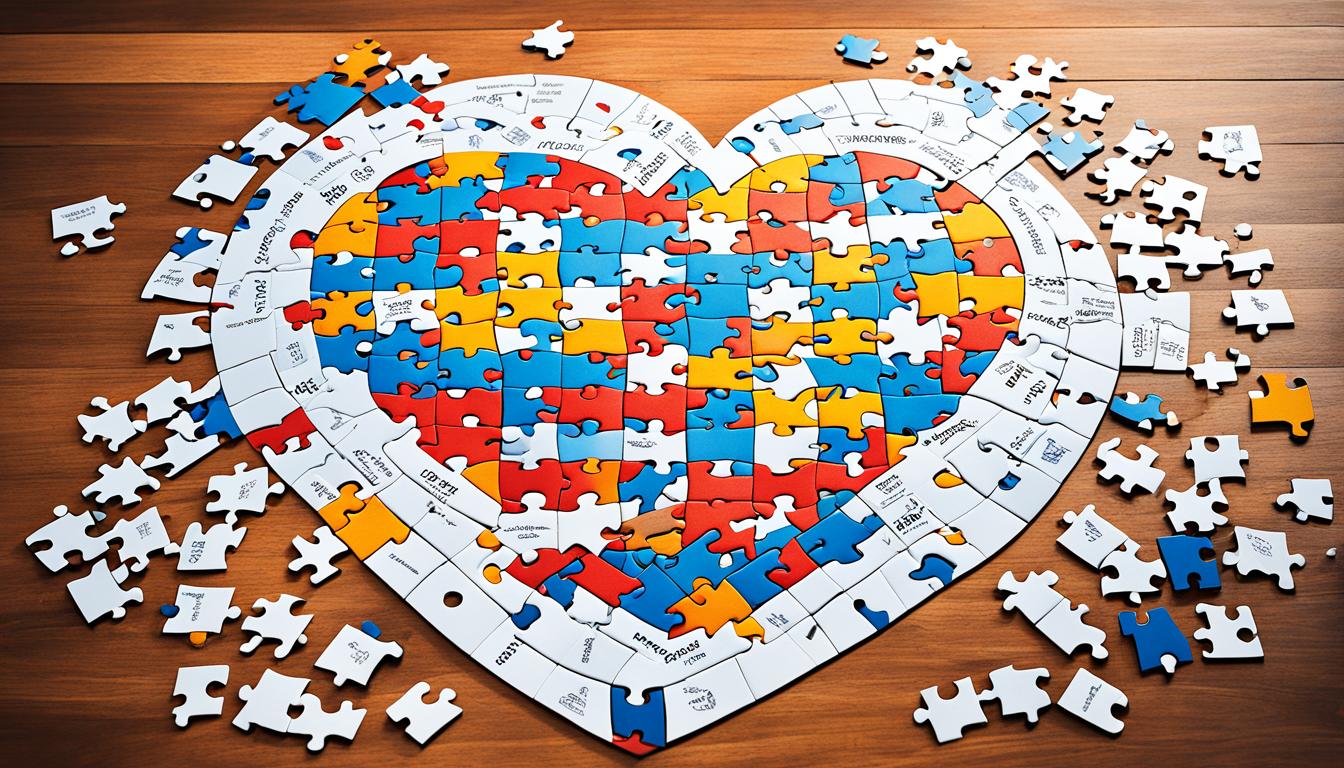In today’s world, brands see the huge value in loyal customers. Loyal customers spend 67% more than others. For this reason, smart businesses are focusing on relationship marketing. This strategy is all about building strong and lasting connections with customers.
Relationship marketing changes how businesses think. It’s about more than just one sale – it’s about creating lasting loyalty. By offering personalized service and special deals, companies can keep customers coming back. This new way of marketing is a big chance to grow and make more money.
At the center of relationship marketing is keeping customers happy. This means knowing what each customer likes and delivering a personal touch. This approach not only boosts sales but also makes customers worth more over time. It gives companies a strong edge against their competition.
What is Relationship Marketing?
Relationship marketing is about building strong, lasting connections with customers. Instead of just focusing on getting new customers, it values the ones you already have. Happy, returning customers often spend more and bring others back with them.
Definition and Key Concepts
This type of marketing puts customers first. It aims to develop relationships that benefit both the customer and the company. A successful strategy includes listening to customers, making their experiences unique, and rewarding their loyalty.
- Obtaining and listening to customer feedback
- Curating personalized experiences for customers
- Enhancing customer service delivery
- Establishing a rewards program to incentivize repeat business
- Embracing an omnichannel approach to seamlessly engage customers across multiple touchpoints
Choosing customer relationships over quick sales means loyal customers and more profit. By staying in touch with customers, companies can grow steadily through repeat business and customer loyalty.
| Key Characteristics of Relationship Marketing | Benefits of Relationship Marketing |
|---|---|
| Long-term strategy for customer retention | Increased customer loyalty and lifetime value |
| Focus on building personalized customer relationships | Higher repeat business and profitability |
| Emphasis on customer service and value-added offerings | Improved customer satisfaction and advocacy |
| Utilization of data and technology for personalization | Sustainable competitive advantage |
The Importance of Relationship Marketing
Today, in the competitive marketplace, the role of relationship marketing is key. Customers want deeper relationships from the brands they pick. Seventy-three percent of customers see customer trust as vital in buying stuff, Salesforce says. With relationship marketing, businesses can win by earning real customer loyalty. This leads to increased sales too.
Brands can build strong ties with their customers. This results in brand awareness and customers who support the brand. These supporters not only talk about the brand naturally but also help the brand stay steady over time, even during tough economic times.
Relationship marketing offers a full view, not just quick sales. It shows that making deep connections with customers matters. This leads to customers staying loyal, coming back, and telling others about the brand. This approach focuses on keeping customers happy and builds more trust over time. This makes for a stronger and more profitable business.
Investing in relationship marketing brings great advantages. These include:
- More chances for sales with repeat customers and referrals
- Higher brand awareness and a good brand image
- Better long-term stability and strength against market changes
In today’s world, where customers matter most, relationship marketing is super important. By valuing customer trust and customer loyalty, companies can set themselves up for long-term success. They can grow sustainably and stay ahead in their fields.
Relationship Marketing vs. Traditional Marketing
Relationship marketing and traditional marketing are very different ways to connect with customers. Traditional marketing is more about quick sales or getting a larger share in the market. In contrast, relationship marketing focuses on making long-term connections with customers.
Differences in Approach and Goals
The main differences between these two types of marketing are how they work and what they aim to achieve:
- Communication: Relationship marketing uses two-way communication. Businesses listen and respond to customer needs. Traditional marketing mostly sends out messages without expecting replies.
- Personalization: In relationship marketing, everything is about customizing marketing to what each customer likes and does. On the other hand, traditional marketing uses the same methods for everyone.
- Customer Focus: Relationship marketing keeps customers at its core, always trying to keep them interested and loyal. Traditional marketing focuses more on short sales and growing market share.
- Metrics: When it comes to measuring success, relationship marketing looks at keeping customers, their happiness, and value over time. Traditional marketing leans more on sales numbers and market share.
Relationship marketing is all about focusing on the long haul, talking with your customers, and making efforts that match their personal tastes. This leads to customers standing by your side more, increasing how much they invest in you, and a stronger position against your competition.
| Relationship Marketing | Traditional Marketing |
|---|---|
| Focuses on building long-term relationships with customers | Focuses on one-off transactions and short-term goals |
| Emphasizes two-way communication and understanding customer needs | Employs one-way, standardized messaging approach |
| Tailors marketing efforts to individual customer preferences and behaviors | Relies on a more generic, one-size-fits-all strategy |
| Measures success by customer retention, satisfaction, and lifetime value | Focuses on metrics like sales volume and market share |
Relationship Marketing Examples

Relationship marketing shines when brands focus on their customers. They do this by creating personalized experiences and building a sense of community. They also pay attention to how their actions impact the environment.
Amazon is a master at using customer data to personalize experiences. It suggests products based on what customers browse and buy. This makes shopping easy and engaging for customers.
Starbucks is all about creating a unique experience and a sense of community. Its loyalty program and mobile app make customers feel like they belong. This turns them into loyal fans of the brand.
- Nike is winning at relationship marketing with its Nike Run Club app. It connects runners and helps them achieve their goals. This builds a strong community feeling.
- Apple brings customers back with its ecosystem of products and services. This system is designed to work together. It gives customers a user-friendly, seamless experience, making them want to stay with the brand.
- Patagonia is a favorite among those who care about the environment. Its sustainable initiatives connect deeply with its customers. This creates a united community that shares the brand’s values.
These strategies show that focusing on customers and their needs works. By offering personalized experiences, building strong communities, and caring about important issues, brands can build lasting connections.
Value-Added Services and Relationship Marketing
Using value-added services is a smart way to improve the customer experience and keep people loyal. These services offer more than just the main product or service. They give extra benefits that simplify a customer’s life. This helps companies make stronger bonds with clients and stand out.
For instance, some added services are:
- Installation and setup help
- Extensive user training and onboarding
- Always available customer support
- Services for keeping products in good shape
- Options to make things unique to the customer
These extra services better the overall customer experience. They show customers the company cares about their success. This makes people more loyal and likely to come back or recommend the company.
To really benefit from these services, firms must have a strong revenue model and pricing strategy. It’s key to price these services right. They should seem valuable and aid the company’s finances. Finding this balance helps in creating a lasting revenue model that supports relationship marketing.
| Value-Added Service | Benefits to Customers | Benefits to the Company |
|---|---|---|
| Installation and setup assistance | Product setup without headaches, saves effort and time | Boosted customer happiness, more customer stays |
| Comprehensive user training and onboarding | Quick value, product loved more | Less spent on customer help, customer loyalty up |
| Dedicated 24/7 customer support | Dependable service, mind at ease | Better customer experience, stronger customer loyalty |
| Preventative maintenance and product repair | Products last longer, less time not working | More ways to earn, finetunes pricing strategy |
| Customization and personalization options | Fits unique needs, perfect match | Stands out from challengers, harder to leave |
By connecting value-added services with relationship marketing, companies build a memorable customer experience. This mix leads to lasting customer loyalty and a good revenue model.
Relationship Marketing and Recurring Revenue

Relationship marketing often means selling subscriptions. This way, customers pay regularly to use a product or service. This setup brings in money on a regular basis, which is good for the company’s finances. It’s also cheaper to keep old customers happy and spending more, than to find new ones to buy something once.
Benefits of Subscription-Based Models
Subscriptions help businesses grow without much extra cost. This steady income makes them more appealing to people who might invest in them. This is especially true for companies that know how to keep their customers happy.
Subscriptions offer many advantages:
- Recurring revenue and financial stability
- Improved customer retention and loyalty
- Scalability and opportunities for growth
- Increased operational efficiency and lower customer acquisition costs
- Enhanced data and insights about customer behavior and preferences
With smart use of relationship marketing and subscriptions, a business can get a steady stream of income. It helps them form stronger ties with customers. This paves the way for financial security and growth for the long haul.
| Metric | One-Time Transactions | Subscription-Based Models |
|---|---|---|
| Revenue Predictability | Unpredictable | Predictable and Recurring |
| Customer Acquisition Cost | Higher | Lower |
| Customer Retention | Lower | Higher |
| Scalability | Limited | Highly Scalable |
| Investor Appeal | Less Attractive | More Attractive |
Building a Relationship Marketing Strategy
Creating a strong relationship marketing strategy is vital for any business. It helps build lasting customer loyalty and boosts growth. This strategy involves many elements that combine to offer personalized, valuable experiences for customers.
The heart of a good relationship marketing strategy is a solid customer loyalty program. It rewards loyal customers and boosts their love for your brand. Good customer service shows you care, growing the bond between your company and its customers.
Using data-driven insights is key too. It lets you know your customers better and tailor your interactions. This makes them happier and more loyal.
Staying in touch with customers is also very important. Communicating through emails, reaching out personally, or suggesting products they might like makes them feel valued.
Moreover, using the right tools and technologies can make your job easier. Customer management software and email automation make offering a special experience easier for your customers.
By combining these strategies, businesses can keep their customers happy and coming back. This leads to growth and success over time.
| Key Elements of a Relationship Marketing Strategy | Benefits |
|---|---|
| Customer Loyalty Program | Encourages repeat business and brand affinity |
| Responsive Customer Service | Demonstrates commitment to customer satisfaction |
| Data-Driven Insights | Enables personalized experiences and deeper customer engagement |
| Consistent Follow-up | Reinforces the value placed on customer loyalty |
| Relationship-Building Tools and Technologies | Streamlines and scales relationship marketing efforts |
The Power of Loyal Customers
Loyal customers are crucial for any thriving business. They not only keep coming back to buy but also recommend the brand. They do this through word-of-mouth and positive reviews. Loyal customers on average spend 67% more than others, making them incredibly valuable.
Boosting customer retention by 25% can increase a business’s profits significantly. This is because it’s cheaper to keep old customers than find new ones. Loyal customers also tend to buy more frequently. This leads to a higher customer lifetime value.
Increased Sales and Profitability
The impact of loyal customers is clear. They spend more and recommend the brand to others. This repeat business and positive word-of-mouth boost sales and profits.
Building strong relationships with customers brings many benefits. Businesses that focus on loyalty marketing enjoy more profitability. They also stay ahead in the competition. Investing in strategies for customer loyalty unleashes loyal customers’ full potential.
| Metric | Loyal Customers | Transient Customers |
|---|---|---|
| Average Spending | 67% more | N/A |
| Customer Lifetime Value | Higher | Lower |
| Profitability Impact | 25% to 95% increase | N/A |
Leveraging Customer Data for Personalization
In today’s world, making strong connections with customers is key to success. Personalization is a powerful method – it means tailoring your approach to meet the needs of each customer. This all starts with understanding your customer data well.
Companies use advanced customer relationship management (CRM) systems to manage and study customer data. This helps them learn what their customers like and need. By using this data, businesses can offer personalized experiences. These make customers feel understood, which can boost loyalty.
For example, including a customer’s name in emails can improve how many people click on links. It adds a personal touch. Also, recommending products based on what a customer has bought before can improve their shopping experience.
In marketing, accurate use of customer data can make email campaigns much more effective. By sending messages that are just right for specific groups, companies can increase how much people respond. This often leads to more sales.
By tailoring customer experiences, companies can get closer to their clients and grow their business. The key is to use the right technology and strategies. This way, customers feel more connected and loyal.
| Personalization Strategy | Benefits |
|---|---|
| Using customer name in email campaigns | Improved click-through rates and stronger emotional connection |
| Personalized product recommendations | Enhanced customer experience and increased sales |
| Audience segmentation and tailored email messaging | Higher engagement and conversion rates in email marketing |
Conclusion
Relationship marketing is now a key strategy for companies to build strong customer loyalty. It moves the focus from just one sale to keeping deep connections over time. This approach boosts sales chances, spreads brand awareness, and secures long-term growth.
Techniques like offering extra services, having subscription plans, and using customer information for personalized experiences work well. They help in building strong brand loyalty and keeping a steady flow of repeat purchases. As people look for more trust, genuine connections, and personalized services, relationship marketing stays important for brands. They want to grow a faithful and profitable customer group.
The real power of relationship marketing is in creating win-win situations for businesses and their customers. Companies that focus on what their customers really need and provide outstanding experiences can be seen as true partners. They gain more loyalty from customers, more sales, and better long-term profits.
FAQ
What is Relationship Marketing?
Relationship marketing is about building strong ties with customers over a long period. This strategy focuses on making customers want to come back. These loyal customers often spend more and are happy to return.
Why is Relationship Marketing important?
It’s key because it boosts sales through loyalty and spreads brand love as customers advocate. Plus, these strong relationships offer stability. They can help a company weather economic challenges better.
How does Relationship Marketing differ from Traditional Marketing?
Traditional marketing is more transaction-focused, aiming to increase sales or market share quickly. It uses one-way communication and widespread messages. Relationship marketing, however, cares more about keeping customers for the long haul. It’s about understanding their needs and communicating with them regularly.
Can you provide some examples of companies implementing Relationship Marketing strategies?
Big names like Amazon, Starbucks, and Apple excel at this. They offer customized experiences and connect with customer values. These efforts have helped them win loyal customers.
How can Value-Added Services strengthen Relationship Marketing efforts?
Adding extra value can greatly improve the customer experience. It shows that a company really cares. For example, services like user training or 24/7 support can make customers stick around longer.
What are the benefits of Subscription-Based Models in Relationship Marketing?
Subscriptions ensure a steady income. They also cost less to market than one-time sales. Plus, they open doors for selling more to existing customers, boosting profits further.
What are the key steps in building an effective Relationship Marketing strategy?
First, create a loyalty program. Then, make sure your customer service is top-notch and quick. Use customer data to really understand and connect with them. Keeping in touch and upgrading your tech tools are also crucial.
How can Loyal Customers benefit a brand?
Loyal customers spend more and bring in others through recommendations. They help build a strong, positive image of your brand, which attracts new buyers.
How can Customer Data be leveraged for Relationship Marketing?
Customer data helps personalize the marketing experience. A good CRM system can centralize this data. It allows tailored offers and communication, making customers feel special.














![NEEWER 55W 18"/45cm Ring Light Kit [New Version], 5600K Dimmable ...](https://m.media-amazon.com/images/I/414QLqvZWLL._AC_.jpg)








